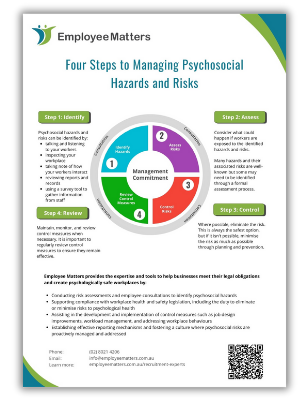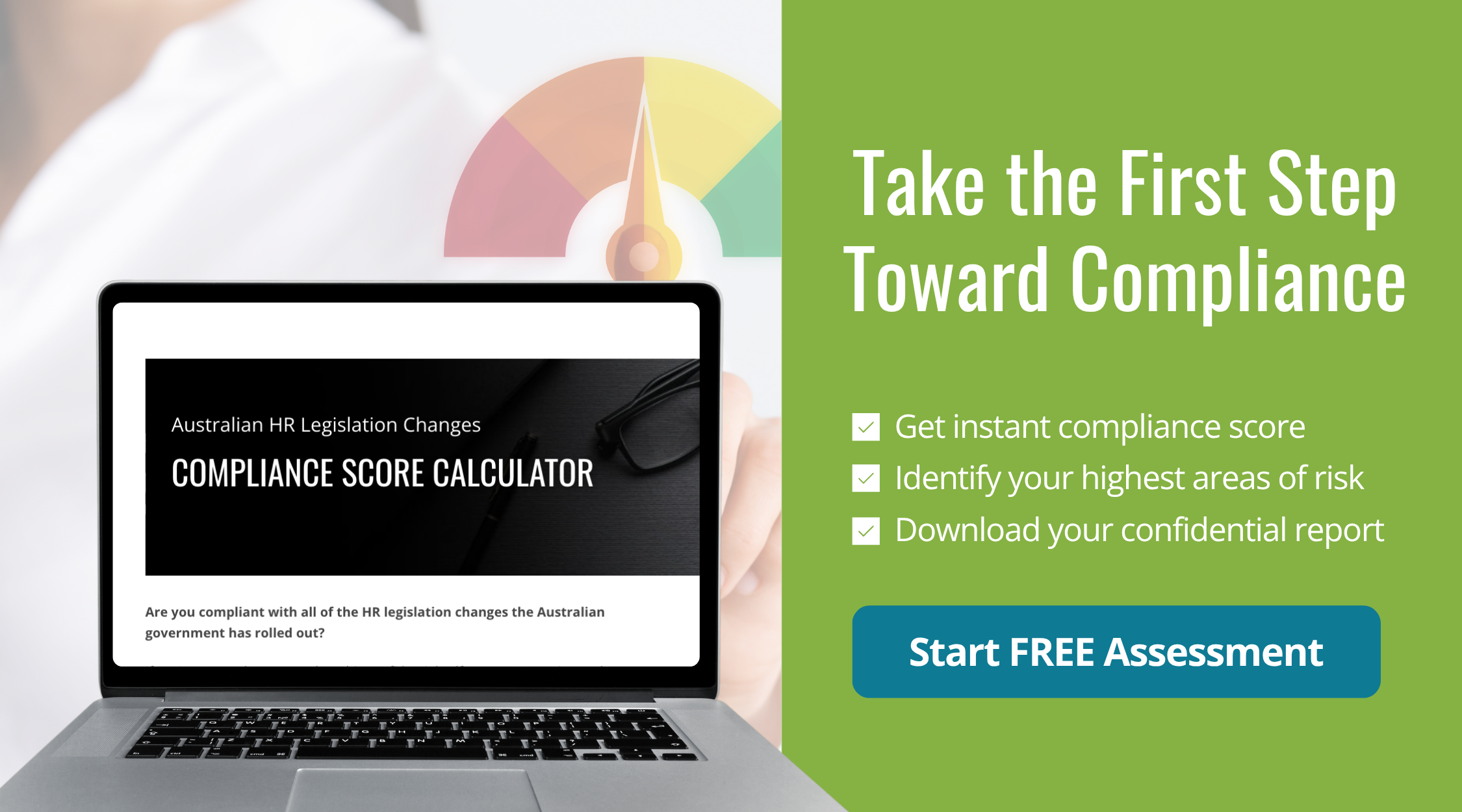While sexual harassment is a profound violation of an individual's rights and wellbeing, its impact extends far beyond the personal harm to the victim; it carries a significant and often hidden financial burden for Australian businesses, a cost that can be measured in billions of dollars and far reaching damage to a company's reputation and bottom line, more on that to follow.
Free Infographic Download:
Workplace Sexual Harassment is Bad for Business
See how workplace sexual harassment can harm business reputation and employee productivity. Find out what the data reveals about its true cost to Australian workplaces.

The Dollars and Cents of Disrespect
The financial repercussions of sexual harassment are a serious issue for business. The cost manifests itself in various ways, impacting productivity and increasing operational expenses.
- Decreased Productivity: When employees feel unsafe or uncomfortable, their focus and efficiency suffer. The cost of decreased productivity from sexual harassment was an estimated $3.8 billion for businesses in 2018.
- Increased Absenteeism and Staff Turnover: Sexual harassment can lead to disengaged employees, increased absenteeism and a higher rate of staff turnover. High turnover means businesses spend more on recruitment, onboarding and training new employees. A recent survey found that a significant number of employees would consider leaving a job that did not take sexual harassment seriously.
- Legal and Workers' Compensation Costs: Businesses face significant legal costs for representation and court proceedings, as well as potential compensation payments to victims. Damages can include lost earnings, pain and suffering, aggravated damages and workers’ compensation claims. The cost of claims can also increase insurance premiums. In a recent case, the Federal Court awarded a record-breaking $305,000 in damages to a worker who suffered psychological injury due to a "toxic and harassment filled workplace culture".
- Reputational Damage: Incidents of harassment can damage a company's reputation, both internally and externally. This can result in a loss of trust among employees and customers and can even impact a company's share market value.
Checklist Download:
What To if an Employee Claims That They Are Being Sexually Harassed
Steps to take with a sexual harassment claim
Respect@Work: A New Approach for Employers
The landmark Respect@Work report released in 2020 by the Australian Human Rights Commission, called for a fundamental shift in how workplaces address sexual harassment. It proposed a new, proactive approach that moves away from a complaints-based model to one that requires employers to take positive action to prevent harassment from occurring in the first place. The report's 55 recommendations are a roadmap for this change.
The most significant change is the introduction of a positive duty in the Sex Discrimination Act 1984. This legal obligation requires employers to take "reasonable and proportionate measures" to eliminate sexual harassment and other forms of unlawful sex discrimination as far as possible. Since December 2023, the Australian Human Rights Commission has been empowered to monitor and enforce this positive duty, including through investigations, compliance notices and enforceable undertakings.
In addition, the Fair Work Act 2009 (Cth) now expressly prohibits sexual harassment at work. Employees can apply to the Fair Work Commission for Stop Sexual Harassment Orders and also seek remedies including compensation.
Employers must also remember their duties under state and territory Work Health and Safety laws. Sexual harassment is recognised as a psychosocial hazard and employers have a duty of care to eliminate or minimise these risks as far as reasonably practicable. Safe Work Australia’s Code of Practice on Managing Psychosocial Hazards (2022) provides clear guidance on these obligations.
It is no longer enough to simply have a policy in the employee handbook; employers must take active steps to foster a culture that prevents this behaviour.
Free Infographic Download:
4 Steps to Managing Psychosocial Hazards and Risks
Discover 4 practical steps to identify and control psychosocial hazards before they impact your workplace.

Practical Steps to Meet the Positive Duty of Care
Compliance and cultural change must be embedded into the business DNA, from day one of employment to ongoing development.
- Respect@Work Training: Implement mandatory, regular and scenario-based Respect@Work training for all staff. This training shouldn't just cover the legal definitions but must also focus on bystander intervention and managerial obligations to report and respond appropriately. Refresher training should be provided annually to reinforce knowledge and commitment to cultural standards.
- Onboarding of New Team Members: Sexual harassment and behaviour policies must be an essential component of onboarding of new team members. This signals immediately that safety and respect are non-negotiable cultural standards. Ideally, new hires should sign a formal acknowledgement that they have read and understood the anti harassment policy and the expectations under the positive duty.
- Cultural Change Resources Available Internally: Prevention requires constant reinforcement. Ensure cultural change resources are available internally, such as accessible policy documents, contact information for internal and external support services (like an Employee Assistance Program) and clear flowcharts on how to report an incident. These resources should be promoted consistently through internal communication channels to ensure they are top-of-mind.
- Adopt a Victim Centred Approach: Ensure anyone who reports harassing behaviour is heard and supported empathetically and that all steps are taken to prevent re-victimisation. The process must be trauma-informed and focus on reducing further harm.
- Monitor, Evaluate and Be Transparent: Regularly gather data (including anonymous feedback) to assess your workplace culture and the effectiveness of your preventative measures. You can't fix what you don't measure.
Take the First Step in Supporting Your Employees
An Employee Assistance Program (EAP) offers confidential support to strengthen workplace wellbeing. Get the free guide to see why it matters for your organisation
The Australian Human Rights Commission has created a range of resources to help employers and workers implement the Respect@Work recommendations, including best-practice guides, training materials and workplace-assessment tools.
Sexual harassment is not just a moral or legal issue; it's a critical business risk. It is now also a clear legal compliance obligation under the Sex Discrimination Act, Fair Work Act and Work Health and Safety legislation. By proactively embracing the guidelines of the Respect@Work report, Australian businesses can not only protect their employees but also their bottom line, fostering a safer, more productive and ultimately more successful workplace for everyone.
Need help with implementing any elements of Respect@Work, employee training or development of policies in your workplace?
Call us at (02) 8021 4206 or email us at info@employeematters.com.au.
You may also be interested in:
Get in Touch
Tell us a bit about your business and we’ll be in touch to:
- Understand the challenges that are holding your team or growth back
- Show you how our embedded HR and Recruitment Experts can solve problems faster, without the overheads
- Identify high-impact areas where HR and Recruitment support could save you time, stress, and money
- Map out a tailored approach based on your goals, industry, and internal capabilities
Alternatively, you can call us on (02) 8021 4206.

